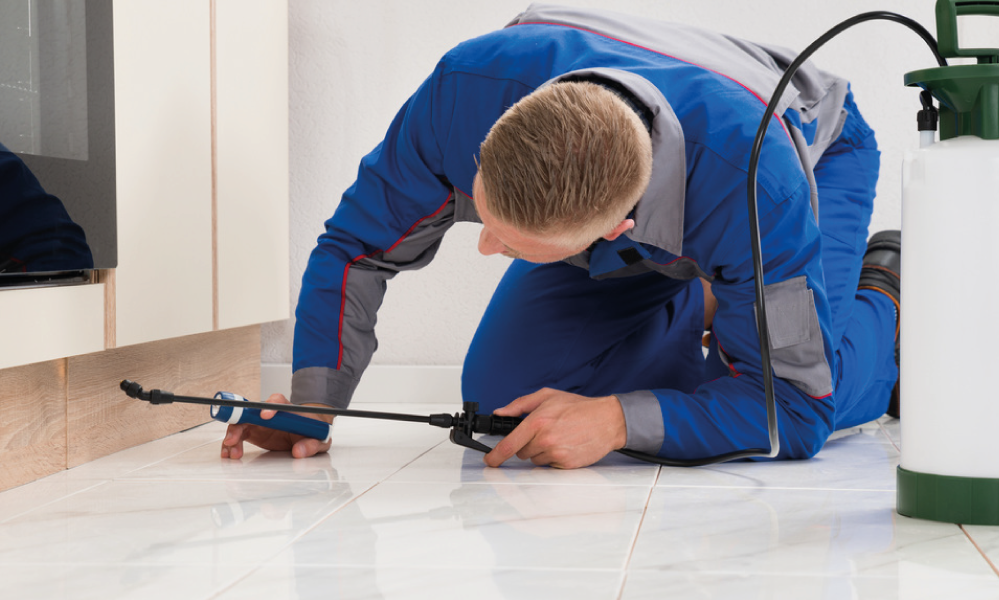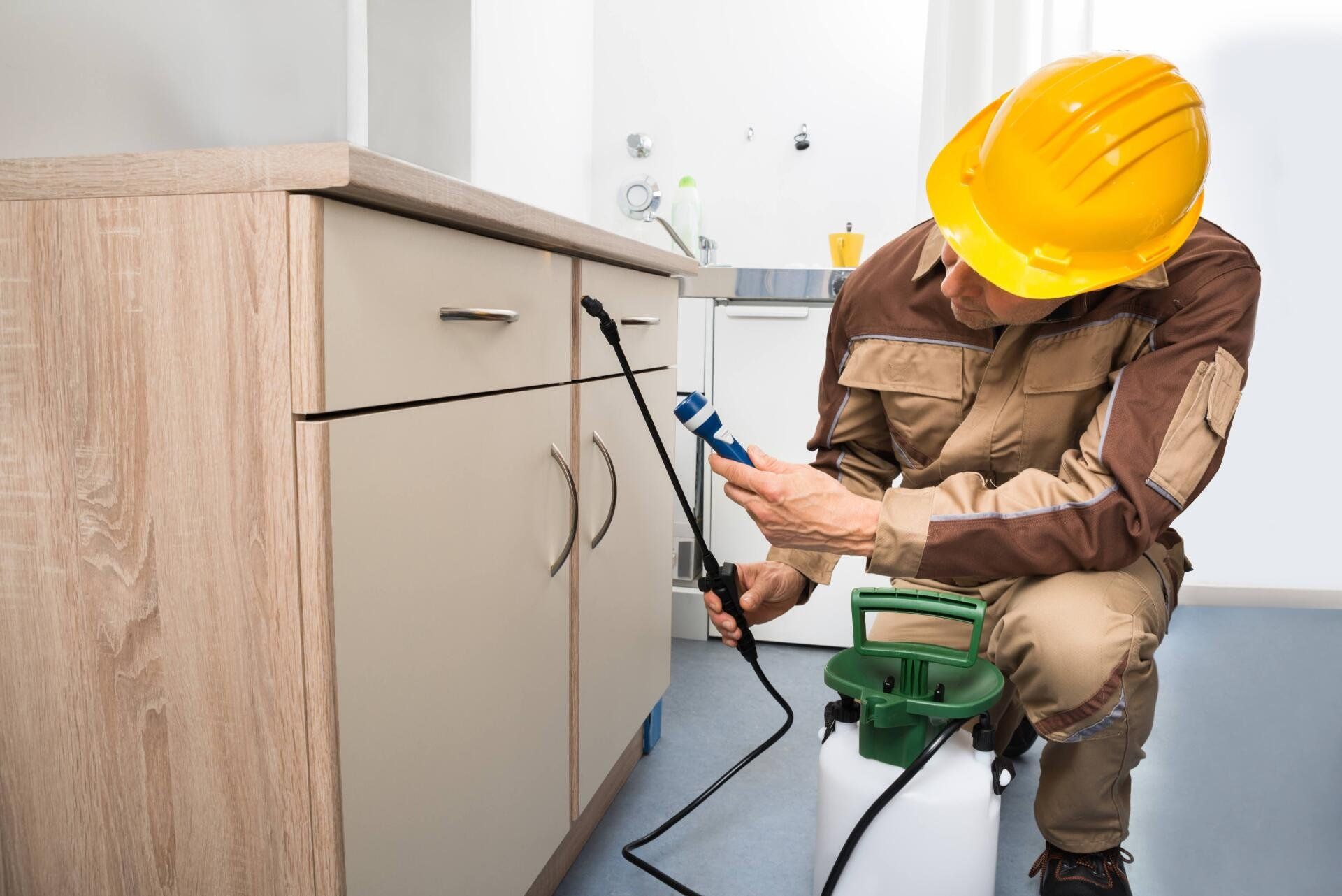Recognizing the Different Methods to Insect Control: A Comprehensive Guide

All-natural Parasite Control Techniques
Utilizing environment-friendly methods such as companion growing and biological parasite control is necessary for effectively managing insects in agricultural settings. Buddy planting entails growing various plants in closeness to discourage bugs, improve nutrient uptake, and boost total crop health.
Organic parasite control includes presenting all-natural killers or pathogens to regulate pest populaces. Ladybugs, for example, prey on aphids, managing their numbers without the need for chemical pesticides. Another example is making use of Bacillus thuringiensis (Bt), a germs that targets details insect parasites while being harmless to people, animals, and helpful pests.
These green approaches not only minimize the reliance on synthetic chemicals yet also aid preserve biodiversity and dirt wellness. By including all-natural bug control approaches into agricultural techniques, farmers can attain sustainable bug management while lessening adverse effect on the environment.

Chemical Insect Control Solutions
Along with natural insect control techniques, the application of chemical parasite control services plays a considerable role in effectively handling pest populations in farming environments. Chemical parasite control remedies are created to target details parasites that may trigger considerable damages to plants. These remedies often include artificial chemicals that are made to eradicate pests promptly and effectively.
Among the crucial advantages of chemical pest control remedies is their effectiveness in regulating bug problems on a large scale. Farmers can apply these options using numerous techniques such as spraying, airing out, or seed therapy to safeguard their plants from damaging pests, weeds, and illness. Furthermore, chemical parasite control solutions are relatively very easy to use and can offer fast results, helping farmers safeguard their returns and minimize economic losses.
Nonetheless, it is important to make use of chemical parasite control remedies carefully to lessen possible negative effect on the atmosphere, non-target organisms, and human wellness. Appropriate application strategies, adherence to security standards, and routine monitoring are essential to ensure the responsible usage of chemical insect control services in farming methods.
Organic Bug Control Approaches
Biological parasite control comes close to leverage all-natural killers or pathogens to handle insect populations in agricultural settings efficiently. This technique uses a green and sustainable solution to pest administration, lowering the dependence on artificial chemicals and decreasing injury to the setting. One usual organic control method is the intro of natural adversaries, such as ladybugs or parasitical wasps, to target specific parasites. These predators prey on the insects, aiding to manage their populations naturally - pest control clovis.
One more organic control approach includes making use of pathogens like infections, germs, or fungi to contaminate and kill parasites. These microbial representatives can be splashed on plants or introduced right into the dirt to fight numerous bugs without hurting helpful insects or various other wildlife. Furthermore, using pheromones to disrupt the mating patterns of insects is one more effective organic control strategy. By disrupting their reproduction, this approach helps to lower parasite populaces without the need for chemical treatment. On the whole, biological parasite control approaches use a lasting and targeted solution to pest monitoring in agriculture.
Integrated Parasite Administration (IPM)
Integrated Insect Monitoring (IPM) is a thorough approach that integrates different parasite control strategies to properly handle and lessen pest populaces in agricultural systems. IPM focuses on long-term prevention of parasites through a combination of biological, cultural, physical, and chemical control approaches. By integrating these various strategies, IPM intends to decrease reliance on chemical pesticides, minimize ecological effect, and advertise sustainable bug administration techniques.
One trick aspect of IPM is using biological controls such as all-natural official source killers, bloodsuckers, and pathogens to manage pest populaces. This approach utilizes the power of nature see here now to keep a balance between bugs and their all-natural adversaries without triggering harm to the atmosphere.
In addition, IPM includes social methods like crop turning, sanitation, and habitat adjustment to produce negative conditions for bugs and disrupt their life process. Physical controls such as traps, composts, and barriers are additionally made use of to protect against insect infestations.
Mechanical and Physical Parasite Control Methods
Utilizing non-chemical methods, such as physical and mechanical bug control methods, is a critical aspect of comprehensive bug management methods, building on the structure of Integrated Bug Management's holistic technique. Mechanical insect control entails the usage of physical barriers or traps to avoid insects from accessing and harming crops or frameworks. This technique can consist of techniques like installing displays on home windows, making use of row covers in agriculture, or utilizing sticky traps to capture insects.
Physical insect control methods, on the other hand, emphasis on straight eliminating insects through physical ways. As an example, making use of warm treatments to get rid of bed pests or vacuuming up parasites like ants or spiders can be efficient methods to manage infestations without using chemicals. By including these mechanical and physical pest control methods into an Integrated Pest Management plan, people and specialists can decrease dependence on pesticides while still successfully reducing and handling pest populations damages.
Final Thought

In addition to natural bug control methods, the usage of chemical bug control options plays a significant duty in successfully taking Your Domain Name care of pest populations in agricultural atmospheres.One of the key benefits of chemical bug control options is their performance in controlling pest invasions on a large scale.Integrated Pest Management (IPM) is a thorough strategy that combines various parasite control strategies to efficiently handle and lessen pest populations in agricultural systems.Making use of non-chemical techniques, such as mechanical and physical insect control strategies, is a crucial facet of thorough parasite management methods, building upon the foundation of Integrated Parasite Administration's all natural technique. By integrating these mechanical and physical parasite control methods right into an Integrated Pest Administration strategy, specialists and people can decrease reliance on chemicals while still properly reducing and managing pest populations damages.